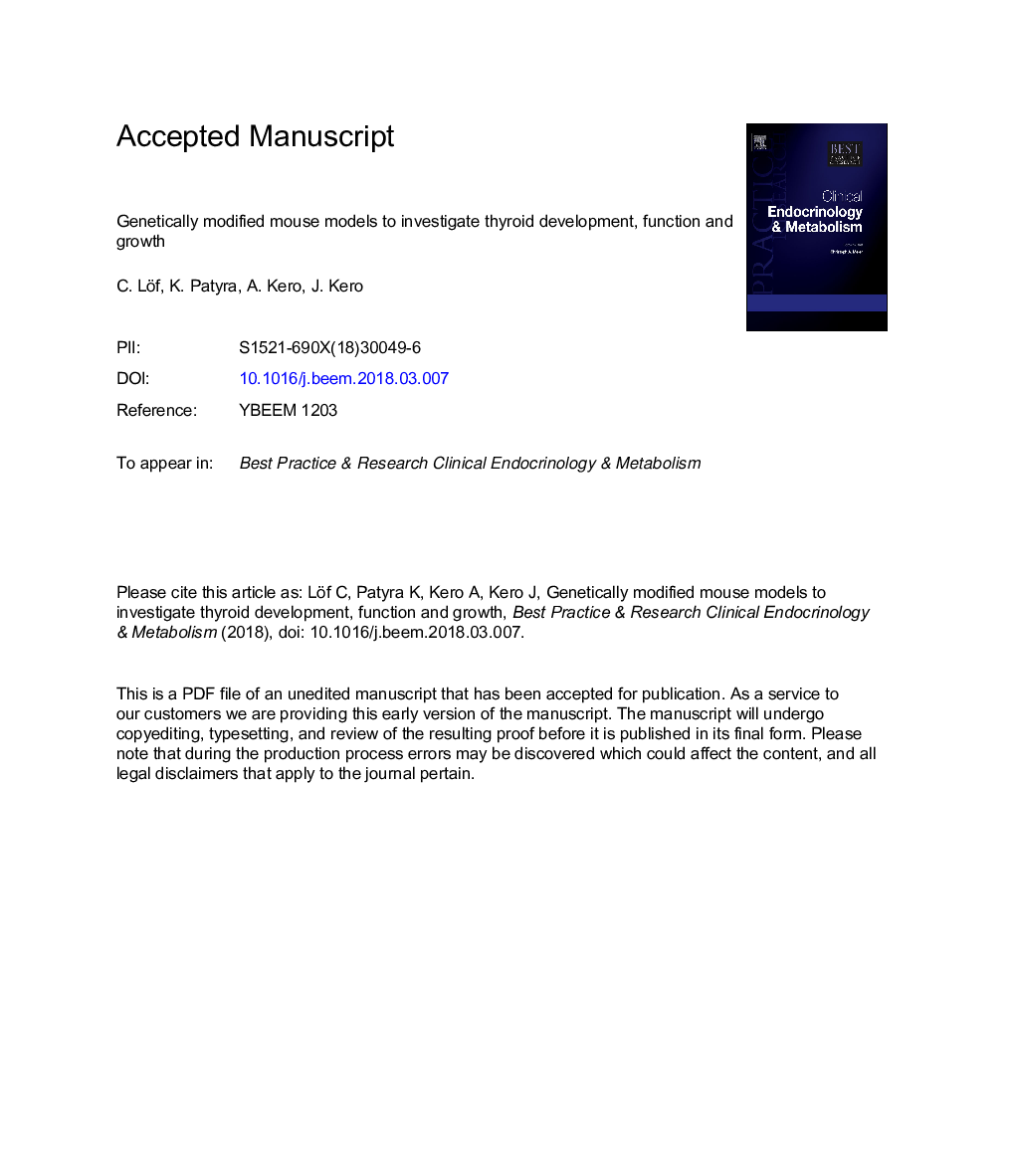| کد مقاله | کد نشریه | سال انتشار | مقاله انگلیسی | نسخه تمام متن |
|---|---|---|---|---|
| 8627308 | 1568654 | 2018 | 32 صفحه PDF | دانلود رایگان |
عنوان انگلیسی مقاله ISI
Genetically modified mouse models to investigate thyroid development, function and growth
ترجمه فارسی عنوان
مدل های موسوم به اصلاح ژنتیکی برای بررسی رشد، عملکرد و رشد تیروئید
دانلود مقاله + سفارش ترجمه
دانلود مقاله ISI انگلیسی
رایگان برای ایرانیان
کلمات کلیدی
موضوعات مرتبط
علوم زیستی و بیوفناوری
بیوشیمی، ژنتیک و زیست شناسی مولکولی
علوم غدد
چکیده انگلیسی
The thyroid gland produces thyroid hormones (TH), which are essential regulators for growth, development and metabolism. The thyroid is mainly controlled by the thyroid-stimulating hormone (TSH) that binds to its receptor (TSHR) on thyrocytes and mediates its action via different G protein-mediated signaling pathways. TSH primarily activates the Gs-pathway, and at higher concentrations also the Gq/11-pathway, leading to an increase of intracellular cAMP and Ca2+, respectively. To date, the physiological importance of other G protein-mediated signaling pathways in thyrocytes is unclear. Congenital hypothyroidism (CH) is defined as the lack of TH at birth. In familial cases, high-throughput sequencing methods have facilitated the identification of novel mutations. Nevertheless, the precise etiology of CH yet remains unraveled in a proportion of cases. Genetically modified mouse models can reveal new pathophysiological mechanisms of thyroid diseases. Here, we will present an overview of genetic mouse models for thyroid diseases, which have provided crucial insights into thyroid gland development, function, and growth with a special focus on TSHR and microRNA signaling.
ناشر
Database: Elsevier - ScienceDirect (ساینس دایرکت)
Journal: Best Practice & Research Clinical Endocrinology & Metabolism - Volume 32, Issue 3, June 2018, Pages 241-256
Journal: Best Practice & Research Clinical Endocrinology & Metabolism - Volume 32, Issue 3, June 2018, Pages 241-256
نویسندگان
C. (Postdoctoral Researcher), K. (PhD-student), A. MD, PhD, J. MD, PhD,
